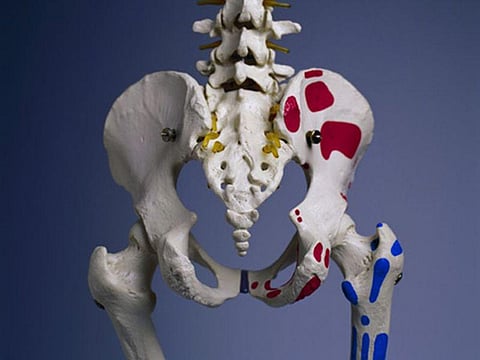FRIDAY, Oct. 1, 2021 (HealthDay News) -- Increased rates of rapidly destructive hip disease (RDHD) are more likely in patients receiving repeated or high-dose corticosteroid hip injections, according to a study published online Sept. 22 in the Journal of Bone & Joint Surgery.
Kanu Okike, M.D., from the Hawaii Permanente Medical Group in Honolulu, and colleagues looked for an association between corticosteroid injection and RDHD. Cases were diagnosed between 2013 and 2016, and controls underwent total hip arthroplasty for diagnoses other than RDHD during the same time period.
The researchers found that hip corticosteroid injection was associated with the development of RDHD (adjusted odds ratio, 8.56). There was evidence of a dose-response relationship, with RDHD risk increasing with injection dosage as well as with the number of injections received. The rate of postinjection RDHD was 5.4 percent, and cases of postinjection RDHD were diagnosed at an average of 5.1 months following injection. RDHD was characterized by rapidly progressive joint-space narrowing, osteolysis, and collapse of the femoral head.
"While the risk of RDHD following a single low-dose (≤40 mg) triamcinolone injection is low, the risk is higher following high-dose (≥80 mg) injection and multiple injections," the authors write. "These findings provide information that can be used to counsel patients about the risks associated with this common procedure. In addition, caution should be taken with intra-articular hip injections utilizing ≥80 mg of corticosteroid and multiple injections."
Abstract/Full Text (subscription or payment may be required)


